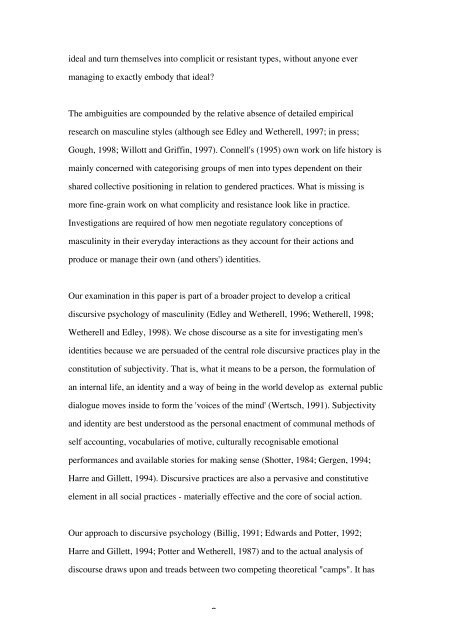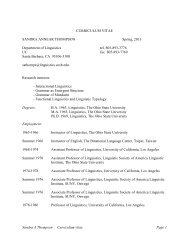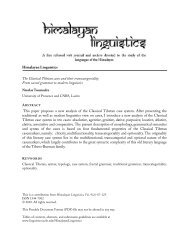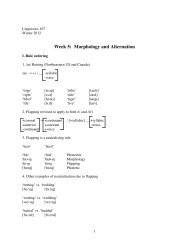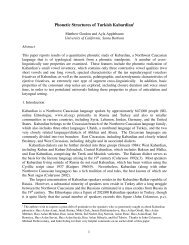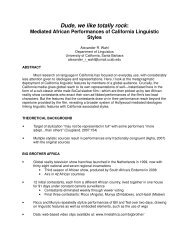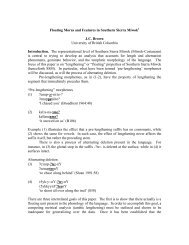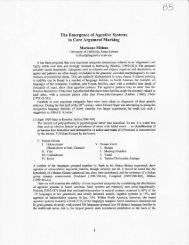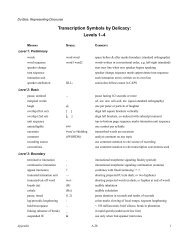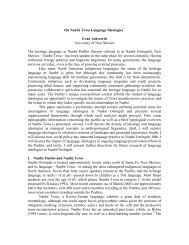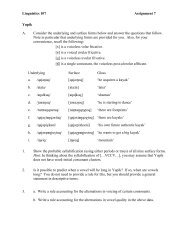Negotiating Hegemonic Masculinity: Imaginary ... - UCSB Linguistics
Negotiating Hegemonic Masculinity: Imaginary ... - UCSB Linguistics
Negotiating Hegemonic Masculinity: Imaginary ... - UCSB Linguistics
Create successful ePaper yourself
Turn your PDF publications into a flip-book with our unique Google optimized e-Paper software.
ideal and turn themselves into complicit or resistant types, without anyone ever<br />
managing to exactly embody that ideal?<br />
The ambiguities are compounded by the relative absence of detailed empirical<br />
research on masculine styles (although see Edley and Wetherell, 1997; in press;<br />
Gough, 1998; Willott and Griffin, 1997). Connell's (1995) own work on life history is<br />
mainly concerned with categorising groups of men into types dependent on their<br />
shared collective positioning in relation to gendered practices. What is missing is<br />
more fine-grain work on what complicity and resistance look like in practice.<br />
Investigations are required of how men negotiate regulatory conceptions of<br />
masculinity in their everyday interactions as they account for their actions and<br />
produce or manage their own (and others') identities.<br />
Our examination in this paper is part of a broader project to develop a critical<br />
discursive psychology of masculinity (Edley and Wetherell, 1996; Wetherell, 1998;<br />
Wetherell and Edley, 1998). We chose discourse as a site for investigating men's<br />
identities because we are persuaded of the central role discursive practices play in the<br />
constitution of subjectivity. That is, what it means to be a person, the formulation of<br />
an internal life, an identity and a way of being in the world develop as external public<br />
dialogue moves inside to form the 'voices of the mind' (Wertsch, 1991). Subjectivity<br />
and identity are best understood as the personal enactment of communal methods of<br />
self accounting, vocabularies of motive, culturally recognisable emotional<br />
performances and available stories for making sense (Shotter, 1984; Gergen, 1994;<br />
Harre and Gillett, 1994). Discursive practices are also a pervasive and constitutive<br />
element in all social practices - materially effective and the core of social action.<br />
Our approach to discursive psychology (Billig, 1991; Edwards and Potter, 1992;<br />
Harre and Gillett, 1994; Potter and Wetherell, 1987) and to the actual analysis of<br />
discourse draws upon and treads between two competing theoretical "camps". It has<br />
6


